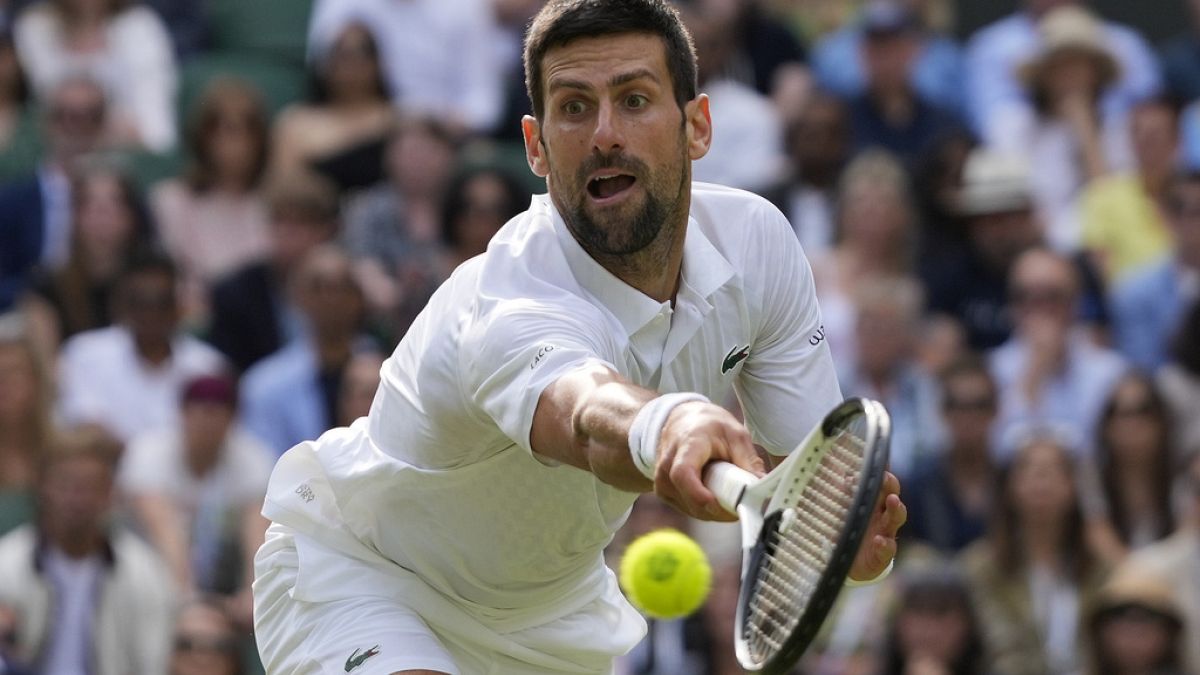Artificial intelligence is disrupting the way we live and work like never before. Now it’s taking the world of sport, for both competitors and fans, into a new dimension.
“We say, you see tennis, we see data. You see golf, we see data,” Jonathan Adashek, Senior Vice President, Marketing and Communications, at IBM, told Euronews Culture at the Cannes Lions International Festival of Creativity.
The technology company is combining today’s big data phenomenon with the power of AI to equip sportsmen and women with more in-depth insights on how they’re performing, as well as how they size up against their competitors.
But it’s also helping to drive up the fan experience, offering more immersive, accessible and personalised experiences, amid heightened content expectations and changes in consumption.
Wimbledon courts generative AI
This year, Dell and The All England Lawn Tennis club, which runs Wimbledon, is launching a new generative AI feature to give fans the lowdown on players as they advance through The Championships.
The ‘Catch Me Up’ feature, accessed through the Wimbledon website and app, will show pre and post-match player cards, featuring AI-generated player stories and analysis. They’ll be personalised based on user preferences and data such as their location, starting with their favourite tennis players.
For pre-match content, fans will get an analysis of recent performances and their likelihood to win. Post-match, there’ll be key statistics and highlights available.
Boosting accessibility in sport
Generative AI will also be deployed at Wimbledon this year to give fans access to matches beyond the main courts, including wheelchair events. It’s part of an enhanced digital match centre, which will auto-generate pre and post-match summaries.
“I was talking to somebody who was a professional tennis player for a few years and was ranked, I think, 864th. That was his highest ranking in the world. And he said, ‘when I was playing, I was always on those outer courts and my family who couldn’t travel to see the matches, they couldn’t watch me,” explained Adashek.
“‘Now if I was playing today, my family could watch me, my friends could watch me, my community could watch me.’ It really can create a much broader fan base and bring more people into the fans, into the sport.”
Tennis fans welcome technology
In new research, from IBM and Morning Consult, 55 per cent of global tennis fans surveyed said they think AI will have a positive impact on sports. On generative AI, real-time updates, personalised content and unique insights were cited on how it could improve their experience.
But it’s not just tennis where IBM is looking to smash the AI experience, Adashek highlighted.
“If you look at other sport activities that we’re doing, like the Masters, you can take a full round of golf from any player in the tournament, watch it in under three minutes, and have AI generated commentary in English or Spanish for every shot that they play,” he said.
Will the grandstands lay empty?
All this AI disruption comes in the wake of the pandemic, which fuelled the rise of augmented at-home experiences for sports fans, connecting viewers to the physical action.
With that digital momentum continuing, could this mark the beginning of the end for live audiences in stadiums and other venues?
“Millions of people love to go and watch a match or a game, and I don’t think it changes that,” predicted Adashek. “I think it will just provide them some more insights as they watch it.”
Watch the video above to learn more about how AI will change the face of sports.
You can see more content from Cannes Lions here.
Additional sources • Filmed and edited by Lionel Laval

